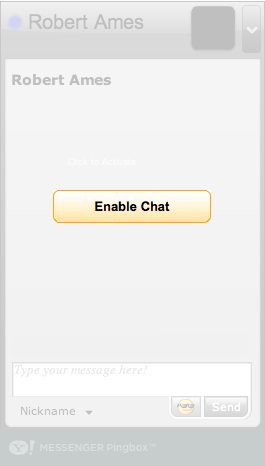…and know almost nothing about music. Most likely you somehow got a guitar and are wondering what you got yourself in to. Don’t worry; you will cope, and it will turn out for the best.
When I first picked up a guitar, I didn’t know what I was getting myself in to, but I feel at least somewhat qualified now to give some advice to other guitar n00bs.
My advice comes from the fact that I’ve settled on learning classical music, but many of these tips will apply no matter what you eventually end up learning.
What Guitar Stuff to Buy
- Tuner ($15, or a clip-on if you are feeling saucy)
- Music Stand ($20-50, whatever you think you’ll use or be able to store)
- Guitar Stand or wall-mount ($10-20, a wall-mount lets you display your guitar, keep it off the floor, and makes it easily accessible. A guitar stand is simpler)
- Strings APPROPRIATE FOR YOUR GUITAR ($10-20) Classical != Acoustic. Classical generally means a guitar with nylon strings. Acoustic generally means metal strings. Electric uses metal strings too, but I don’t know what the differences are. Using the wrong strings can damage your guitar (due to differing tensions).
- String (un-)Winder ($5, it’ll make changing strings easier). Change strings with a friend or your teacher your first time. It’ll prevent you from gouging your guitar with pliers like I did.
What Media to Buy
- Frederick M. Noad - Beginning Solo Guitar. (~$20) It teaches you notes. If you want to do tab-only, then you can skip this step. Beware of tab, for it is the dark-side, and can hamper you musically in the long-run.
- eMedia Beginner Guitar Lessons. (~$30) Totally awesome simple music software. It’s not great for long-term use, but you can find it for less than $30 and will introduce you to a nice variety of styles. Use this to learn about your guitar and to sample a few different musical styles. You will outgrow this, preferably by beginning to take guitar lessons.
- Esteban’s Complete Guitar Course for Beginners. (rent from library) Totally awesome simple DVD + instructional book. You will outgrow this even quicker than the computer lessons. I found this is in our local library by accident, and the book (while using non-standard tab-like notation) does a reasonable job of getting you excited about sounding like you know what you’re doing.
- A chord chart (print one out) … It’s fun to try to smush your fingers into the shapes… fun as in: painful and confusing.
Of all the above media, the only one I was using after 1-2 months is Noad’s book and a little laminated chord chart for reference. In addition to the above, buy one or two music books of music that you’re interested in. It’ll be a good stretch for you while you’re learning. In some cases you can try simplifying the music you play, ie: by playing only the high or low notes, or only the chords.
A word of warning: at first only you will understand what music you’re trying to play no matter how hard you’re trying or how much progress you’ve made. People you share music with are used to hearing professional bands, musicians, produced music, “the best take”. You make a few small mistakes or mess up the rhythm and people won’t be able to “hear” the same thing you’re trying to play. Chalk it up to experience and keep practicing. One day you’ll surprise both yourself and your audience.
What to Learn
- Your Chords (E, A, C, D, B, G, etc). You won’t really understand them until much later, but for now they make your guitar sound nice and are good to practice.
- The Notes. They’re important, yo.
- Some simple songs. I really recommend delcamp.net and book #1. It’s got a bunch of songs like “Happy Birthday” and “Frère Jacqus” which are fun to play.
Sites to Visit
- http://delcamp.net/ - Classical Guitarist forum. Good people. Very helpful to recommend guitar teachers in your area.
- http://teoria.com/ - Totally awesome for learning about how music works.
- http://www.sheetmusicplus.com/ - Great collection of sheet music.
- http://www.craigslist.org/ - You are now a musician. Hang out in their musicians and for-sale forums. It’s kindof neat. Find somebody to practice with.
And Finally…
Start taking lessons as soon as you feel like you know which end of the guitar goes up. Find a good teacher. Ask around about a bunch of guitar teachers. You might need to change teachers as your interest or skill changes. See if you can watch (or listen) to a teacher giving lessons to one of their other students. See if you like their teaching style.
Have fun, and remember that slow & steady wins the race … you should focus on making continual, small progress and celebrating your personal victories (recognizing notes, playing a chord well, etc).
22:22 CST | category / entries
permanent link | comments?
